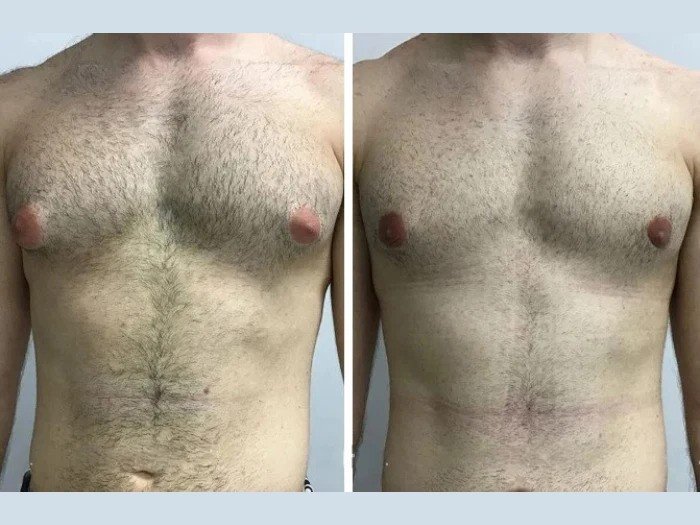When couples decide to begin their IVF journey, one of the most common questions is: “How long does IVF take?” While every individual’s fertility path is unique, having a clear understanding of the IVF timeline helps you prepare mentally, physically, and emotionally for what’s ahead.
From the first consultation to the all-important pregnancy test, IVF usually takes 4–8 weeks per cycle. However, certain steps such as ovarian suppression, frozen embryo transfers, or additional testing can extend the timeline to 6–10 weeks. Let’s walk through each stage of the process so you know what to expect.
Step 1: First Appointment & Diagnostic Tests (2–4 Weeks)
Your IVF journey begins with an in-depth consultation at your chosen fertility clinic. At this stage, your doctor reviews your medical history, lifestyle, and past treatments, while also running tests for both partners.
For women:
Hormone testing (AMH, FSH, thyroid levels)
Ultrasound to assess ovarian reserve and uterus
Infectious disease screening
For men:
Semen analysis (sperm count, motility, morphology)
Blood work for genetics and infections
This stage also involves discussing treatment options, costs, and consents. Depending on lab availability and scheduling, this step may take 2–4 weeks.
Step 2: Ovarian Suppression (Optional, 1–4 Weeks)
In some cases, doctors prescribe birth control pills or GnRH analogs before stimulation. This helps regulate cycles, improve outcomes, and coordinate the timing of treatment.
Not everyone needs this step, but if required, it can extend the process by 1–4 weeks before ovarian stimulation begins.
Step 3: Ovarian Stimulation & Monitoring (8–14 Days)
Once your cycle begins, the real action starts. Daily hormone injections stimulate your ovaries to produce multiple eggs instead of the single egg your body usually releases.
During this time, your fertility team monitors your progress with:
Ultrasounds to measure follicle growth
Blood tests to check hormone levels
This monitoring helps adjust medication doses and maximize egg quality. This step usually takes 8–14 days.
Step 4: Trigger Shot & Egg Retrieval (1–3 Days)
When your follicles reach maturity (around 18–22 mm), you’ll be given a trigger injection to prepare the eggs for retrieval.
Exactly 36 hours later, a short outpatient procedure is performed under sedation. Using ultrasound guidance, your doctor collects the eggs from the ovaries in a 20–30 minute process.
Most women recover quickly and return to normal activities within a day.
Step 5: Fertilization & Embryo Culture (3–7 Days)
The collected eggs are fertilized with sperm either through:
Standard insemination (placing sperm near eggs)
ICSI (Intracytoplasmic Sperm Injection) when sperm quality is low
The embryos are then cultured in the lab for 3–7 days. By Day 5–7, the best embryos reach the blastocyst stage, which offers higher chances of implantation. At this stage, genetic testing (PGT/PGS) can also be performed if needed.
Step 6: Embryo Transfer
Your embryos can either be transferred fresh (within the same cycle) or frozen for a later cycle.
The transfer itself is a simple, painless procedure that takes 20–30 minutes and doesn’t require anesthesia. Using a thin catheter, embryos are placed directly into the uterus.
Step 7: The Two-Week Wait & Pregnancy Test (10–14 Days)
After embryo transfer, you’ll enter what many call the “two-week wait.” This is the emotionally intense phase where you wait for the embryo to implant.
Around 10–14 days later, a blood test measures hCG hormone levels to confirm pregnancy.
How Long Does IVF Take in Total?
A single IVF cycle usually takes 4–8 weeks from consultation to pregnancy test. However, with additional steps like ovarian suppression, frozen transfers, or multiple cycles, the timeline can extend to 6–10 weeks or even a few months.
Here’s a quick IVF timeline summary:
IVF Stage Estimated Duration
Consultation & Testing 2-4 weeks
Ovarian Suppression (if used) 1-4 weeks
Ovarian Stimulation & Monitoring 8-14 days
Egg Retrieval ~2 days
Fertilization & Embryo Culture 3-7 days
Embryo Transfer Same week or later
Pregnancy Test 10-14 days post- transfer
Typical IVF Cycle Duration: 4–8 weeks (sometimes 6–10 weeks)
What Can Affect the IVF Timeline?
Several factors can influence how long your IVF process takes:
Age & ovarian reserve – Older women or those with low ovarian reserve may need longer stimulation.
Clinic protocols – Some clinics use “freeze-all” policies or genetic screening that extend the process.
Personal scheduling – Travel plans, insurance approvals, or preferred timelines can delay treatment.
Medical history – Previous failed cycles may require additional planning and tests.
IVF Success Rates: Why the Right Clinic Matters
The success of IVF depends on multiple factors like age, hormone levels, embryo quality, and clinic expertise. At SCI IVF Hospital, the average IVF success rate is 75–80%, thanks to advanced technology, customized treatment plans, and experienced fertility specialists.
Even if the first attempt doesn’t work, remember that many couples need more than one cycle to achieve success. Persistence and the right support system can make all the difference.
When IVF Doesn’t Go as Planned
Failed egg retrieval: Don’t lose hope if your first retrieval doesn’t produce the expected results. Most patients need multiple cycles to succeed.
Failed embryo transfer: This is emotionally tough, but very common. Factors like embryo quality or uterine receptivity play a role. With guidance from your doctor, you can try again in the next cycle.
Final Thoughts: Your IVF Journey with SCI IVF Hospital
So, how long does IVF take from start to finish? On average, 4–8 weeks per cycle. In more complex cases, up to 10 weeks. Knowing the IVF timeline helps you plan, stay emotionally prepared, and set realistic expectations.
At SCI IVF Hospital, we understand that every couple’s journey is unique. Our compassionate team provides personalized care, advanced reproductive technologies, and emotional support at every step—from your first consultation to embryo transfer and beyond.
Your dream of parenthood is possible. With the right guidance, patience, and care, IVF can bring you closer to the family you’ve always hoped for.
Thank you for being part of my Tricky journey. Your support means a lot and keeps me inspired to share more!





